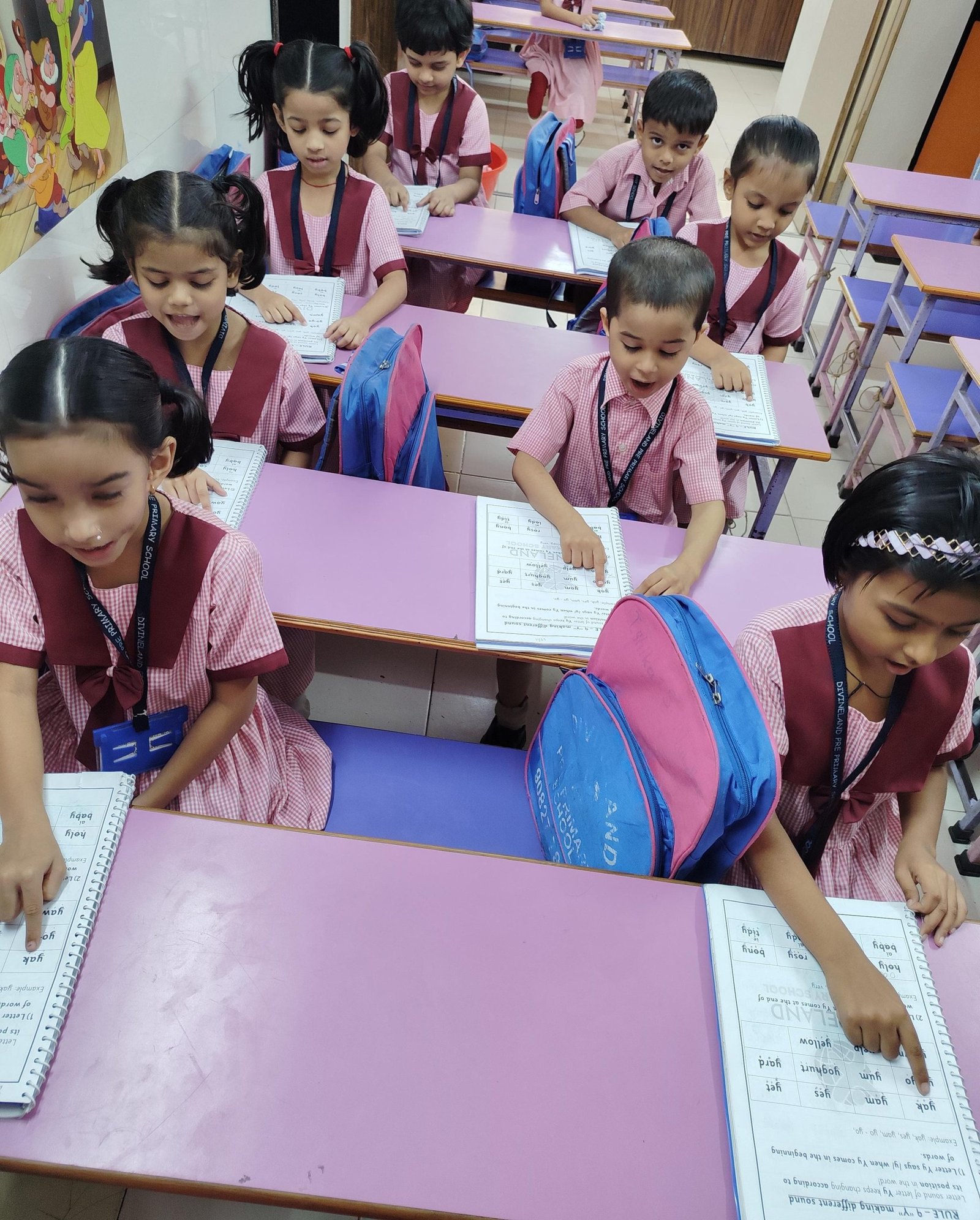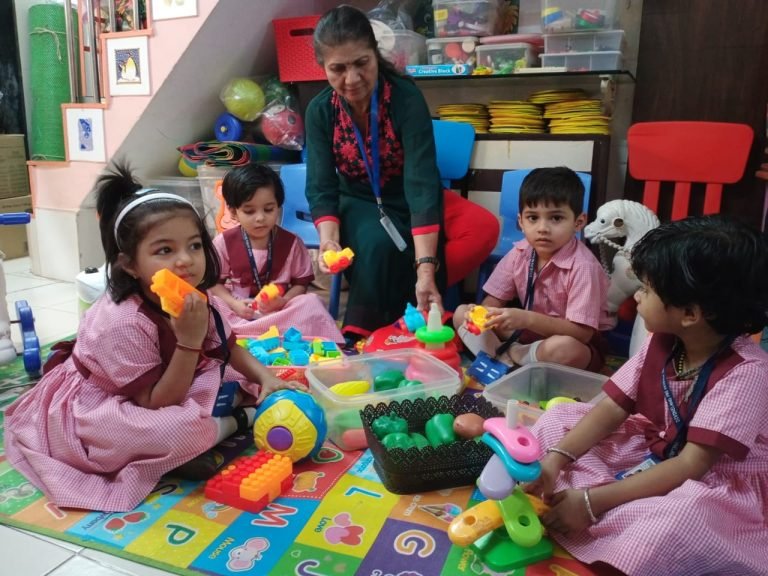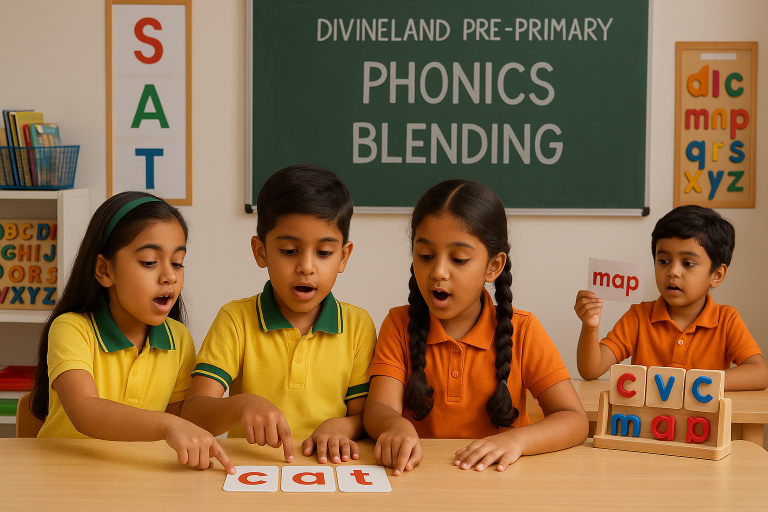
Reading Skills are a major part of how children understand the world around them. From recognizing letters to understanding tales, good Reading Skills enable children to learn quicker and love books more.
Developing Good Reading Skills early makes them more confident in speaking and writing. If children have proper guidance at home and school, they can read as a fun and beneficial activity in their daily life.
How to Boost Reading Skills Early?
Building sound reading skills early in life sets the foundation for a lifetime of learning. Early reading patterns enhance vocabulary, understanding, and general academic performance. Suitable approaches can make reading both effective and rewarding.
The following are some learning strategies that can enhance reading skills early in a child’s educational path.
Phonics-Based Instruction
Teaching children letter-sound relationships is essential for Early Reading Development. Phonics will enable the child to read new words through recognizing sound patterns. Start with basic letter and sound relationships and build towards sounding out words by blending sounds. Visual aids, flashcards, and word games are excellent tools for reinforcing learning. Repetition allows the child to memorize these patterns, developing fluency and confidence within their reading.
Click Here, to download the brochure of Divineland Pre Primary School!
Call/Whatsapp on +919082778593 / +918591021373, for Admission Details.
Read Aloud Sessions
Reading aloud introduces children to new words and sentence structures. Select books at a suitable level and read in expression so that they remain interested. Ask questions throughout the reading to enhance comprehension and maintain engagement. This technique benefits reading skills by demonstrating pronunciation, pace, and tone. Hearing fluent reading also helps to build auditory processing, which is key to text understanding.
Interactive Storytelling
Make reading a two-way interaction by asking children to forecast what comes next or recount sections of the story. Add action with puppets or props to bring the story to life. Interactive storytelling develops reading abilities by engaging children in the storytelling, so they can comprehend story order, sequence, and cause-and-effect structures. This process also increases listening and speaking skills.
Sight Word Recognition
Introduce the common sight words that youngsters need to know by sight, including “the,” “and,” “it,” and “you.” Make practice enjoyable using word walls, flashcards, or games. Speed recognition of sight words results in easier reading and fewer frustrations. Excellent reading skills balance decoding with recognizing words by sight, particularly for beginning readers.
Labelling and Print-Rich Environment
Establish a learning environment with words printed everywhere. Label objects in the room—e.g., “chair,” “door,” or “bookshelf”—so children associate naturally objects with written words. A print-rich environment encourages children to get to know letters and word shapes, strengthening reading skills incidentally without direct instruction. Hearing and observing words frequently leads children to try reading on their own.
Guided Reading Practice
In small groups, give children books that have been levelled to their reading ability. Provide guidance as they read aloud, sounding out hard words and questioning to ensure understanding. This approach fine-tunes reading skills by aiming at each child’s unique needs and increasing text difficulty in a step-by-step manner. Guided reading promotes confidence and the giving of real-time feedback.
Word Play and Rhyming Games
Have children practice rhyming, word families, and alliteration in activities. Activities such as matching rhyming pairs or completing rhyming lines assist children in identifying patterns of sound. These exercises enhance Phonemic Awareness, an important component of excellent reading ability. Once children are aware of the sound of words and how they connect to one another, decoding is simpler and more automatic.
Daily Reading Habit
Dedicate a specific amount of time every day to reading. Whether it is reading as a class or independent reading, regularity fosters routine and enhances progress. Habituation becomes strong through regular reading by establishing a relaxed environment for concentration and practice. Children begin to realize reading as an enjoyable and regular occurrence in their routine over time.
Building reading skills early is not rushing kids—it’s about applying the right techniques every day and patiently. When daily living integrates reading with support through engaging, interactive methods, children fall in love with books and learning. Early initiation provides them with the right skills to excel at school and beyond.
Click Here, to download the brochure of Divineland Pre Primary School!
Call/Whatsapp on +919082778593 / +918591021373, for Admission Details.

Fun Ways to Build Reading Habits
Establishing a love for reading starts early, and it being fun is the most important thing. Kids develop better Reading Skills when the experience is enjoyable, regular, and anxiety-free.
Following are some innovative and practical tips to establish reading habits that also improve Reading Skills naturally.
Create a Cozy Reading Corner
A designated area for reading invites children to sit with a book. Utilize soft cushions, a little shelf, and proper lighting. Once kids have an area where they think of books, they turn it into a routine. This relaxed environment increases concentration and improves Reading Skills with minimal distraction. Make children select what to use as decorations in their corner so that they feel owned and enthusiastic about it.
Read Aloud Daily
Read-aloud is an effective means of demonstrating good pacing, pronunciation, and expression. Whether a bedtime or morning read, this family time enhances vocabulary and listening. A regular read-aloud reinforces the building of Reading Skills by sharing new words and sentence patterns. Ask easy questions in the course of or after reading to develop understanding and stimulate discussion.
Use Picture Books with Limited Text
Books with bright illustrations and short texts help children connect images with words. These kinds of books support early Reading Skills by encouraging storytelling, word recognition, and sentence structure awareness. Ask children to describe what they see or predict what happens next. This keeps them involved and builds both imagination and language understanding.
Play Word and Letter Games
Activities such as letter bingo, rhyming contests, or alphabet puzzles are great for developing Reading Skills through play. They reinforce sound-letter association, phonics, and vocabulary. You can even make everyday experiences into a game—such as finding letters on signs when you’re out walking. These light-hearted methods diminish stress and establish habits in natural, enjoyable ways.
Establish a Family Reading Habit
Designate a set time of the day when all members read together or alone. This communicates that reading is worth doing. Children observe parents or siblings reading and are more likely to imitate. Establishing a routine of reading every day enhances Reading Skills by maintaining routine and showing an example. Vary between books, magazines, or comics to suit various interests and maintain interest levels high.
Visit Libraries and Bookstores Together
Letting children browse shelves, page through books, and select their own books generates excitement. Frequent visits to a library ensure exposure to plenty of stories appropriate to various levels of Reading Skills. Joining library activities or reading clubs can make it even more enjoyable. Providing children with choice enhances their motivation to read.
Include Books in Daily Activities
Connect reading with everyday life. For instance, if you are cooking together, read a recipe aloud. If you are heading to the zoo, read an animal book before going. This link of books and life context strengthens understanding and develops Reading Skills in a relevant context. Children understand that Reading is Helpful, not merely done at school.
Celebrate Small Milestones
Acknowledge efforts such as completing a book or reading for 10 minutes continuously. Create a reading chart or diary where kids can monitor their progress. Acknowledging achievements makes them more confident and encourages them to read more. Celebrations linked to effort, rather than outcomes, assist in reinforcing Reading Skills growth in the long run.
Reading Skills develop best in settings where reading is fun and easy. These enjoyable techniques make reading an integral part of daily life, making it a lifetime habit. Children can develop solid reading foundations that guarantee lifetime learning with patience, diversity, and support.
Improve your child’s reading skills—enrol your child in Divineland Pre Primary School now!
Click Here, to download the brochure of Divineland Pre Primary School!
Call/Whatsapp on +919082778593 / +918591021373, for Admission Details.
Reading Skills for Children
FAQs
What Age can Kids Begin Learning Reading Skills?
Children can begin learning early reading skills as early as age 3 with songs, stories, and play.
How do Parents Enhance Reading Skills at Home?
Read every day, discuss the story, and have fun games that involve phonics and word recognition.
Which School Encourages Early Reading Skills Development?
Divineland Pre Primary School develops robust reading abilities using fun, child-friendly strategies.


